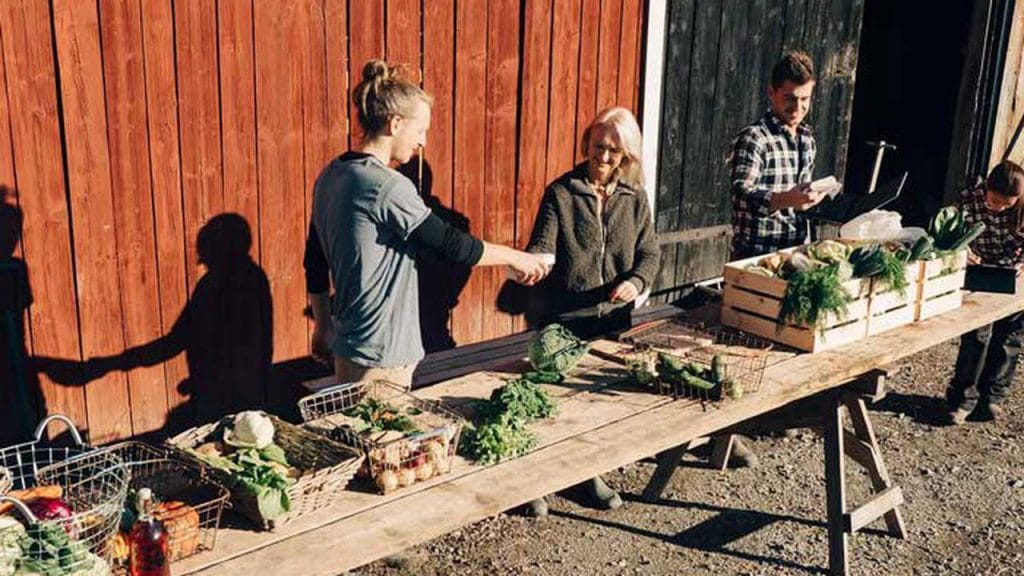Being part of a community can be a great source of strength, offering support both emotionally and practically to all areas of life. When something is difficult, being able to share the load with someone else, whether by working together or just by having someone listen to your worries, can be a powerful thing.
A common criticism of organic food is that it’s not accessible. It’s too expensive. It doesn’t produce enough to feed everyone who needs it. If you live in a remote area, your chances of being able to buy organic in your local store is nearly non-existent.
So how can we combine these things? How can we take the advantages of a community and use them to make organic food accessible to everyone? Well, there are a few things people have tried to make sure anyone can be part of the growing world of organic farming and food. It starts in the farms where the food is grown and carries on through transportation and retail to the kitchen and the plate.
Community-supported agriculture (https://www.nal.usda.gov/afsic/community-supported-agriculture) is a way for producers and consumers to share both the burdens and the benefits of farming. This means increased flexibility and innovation, allowing adaptation to the needs of a specific community without having to sacrifice to larger corporations more interested in a one-size-fits-all model that maximizes profit at the expense of the people who actually need the products and services.
This form of agriculture has been used to try to support more sustainable farming, including through the implementation of organic standards, and the Department of Agriculture runs programs to educate and assist farmers who want to make these kinds of changes. It increases security for producers and accessibility for consumers, so everyone benefits.
Other programs interested in organic accessibility include those that purchase organic food and distribute it to low-income families, those offering education and those who don’t just help with the food but also the other kitchen supplies and cooking techniques needed to maintain a healthy organic diet.
There are lots of potential barriers that may prevent certain communities from accessing organic food, even if they are enthusiastic about trying (https://www.organicconsumers.org/news/top-ten-barriers-organic-and-local-food-access-low-income-individuals). Finding ways to bring farmers and consumers together is just one of the ways that the community can be expanded to the benefit of everyone.




